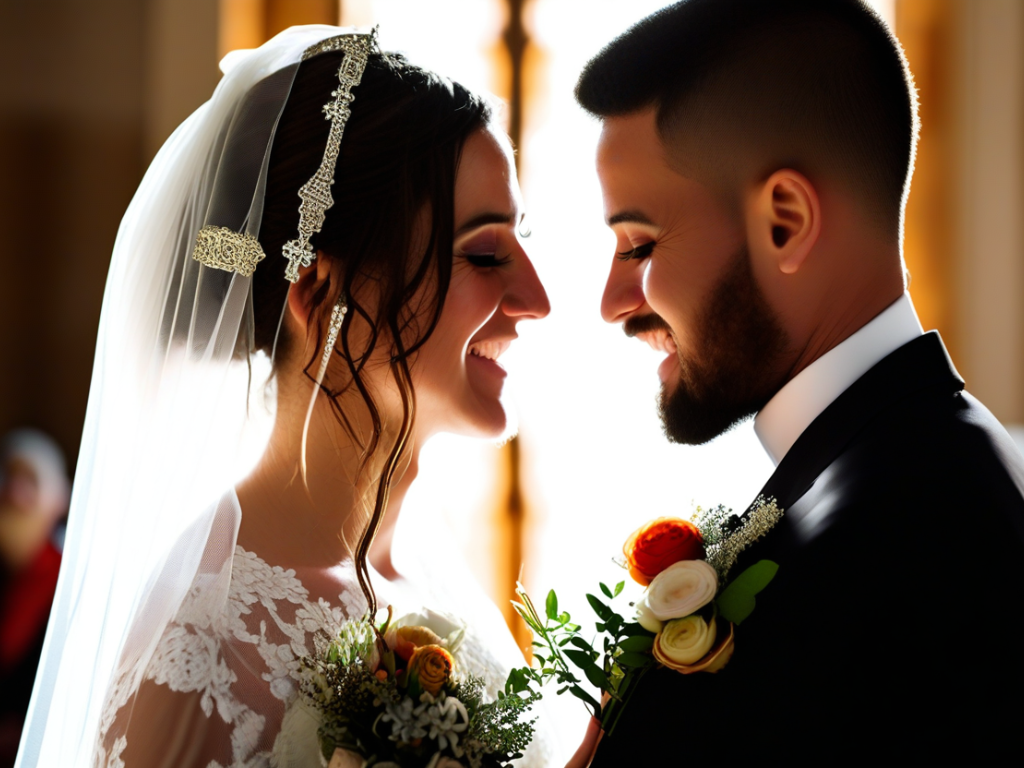Welcome to the wonderful world of wedding planning, where love, tradition, and personal style come together to create a truly magical day. One of the most beautiful aspects of weddings is how they bring together different traditions and customs, including religious practices that hold deep meaning for many couples. In this article, we will explore how you can honor and celebrate your religious traditions in a contemporary wedding, blending the old with the new to create a unique and meaningful celebration.
In this article you will find:
- The Importance of Religious Traditions
- Bringing Tradition into the Modern Day
- Personalizing Religious Rituals
- Incorporating Religious Elements
- Symbolic Decor
- Customized Vows
- Religious Music
- Working with Your Officiant
- Pre-Wedding Meetings
- Rehearsal Dinner
- Embracing Diversity and Inclusivity
- Unity Ceremonies
- Cultural Touches
The Importance of Religious Traditions
Religious traditions are often an essential part of a couple’s heritage and identity. They provide a sense of connection to our roots, ancestors, and beliefs. Incorporating these traditions into your wedding can add depth and significance to the ceremony, making it a truly spiritual experience.
Bringing Tradition into the Modern Day
While some may view religious customs as outdated, they can be beautifully adapted to suit a contemporary wedding style. By infusing these traditions with a fresh perspective, you can create a ceremony that resonates with both your faith and your personal values.
Personalizing Religious Rituals
One way to modernize religious rituals is to personalize them to reflect your unique love story. For example, you could incorporate readings from your favorite love poems or songs that hold special meaning for you as a couple. This personal touch can make the ceremony feel intimate and authentic.
Incorporating Religious Elements
There are many ways to incorporate religious elements into your wedding, from subtle touches to more overt gestures. Here are a few ideas to inspire you:
Symbolic Decor
Consider incorporating traditional religious symbols into your decor, such as a unity candle, chuppah, or floral arrangements that hold special religious meaning. These elements can add a touch of tradition to your ceremony while creating a beautiful visual impact.
Customized Vows
Customizing your wedding vows to include religious blessings or vows specific to your faith can be a powerful way to honor your religious traditions. You can work with your officiant to craft vows that resonate with your beliefs and values, creating a sacred moment during the ceremony.

Religious Music
Music has the power to elevate the atmosphere of your wedding ceremony. Consider incorporating religious hymns or songs that hold significance in your faith tradition. Whether it’s a choir singing gospel hymns or traditional instrumental music, the right music can set the tone for a spiritual and meaningful ceremony.
Working with Your Officiant
Your officiant plays a crucial role in incorporating your religious traditions into your wedding ceremony. It’s essential to have open communication with your officiant about your expectations, beliefs, and preferences regarding the ceremony. Together, you can create a ceremony that respects your faith while reflecting your unique love story.
Pre-Wedding Meetings
Schedule pre-wedding meetings with your officiant to discuss the order of the ceremony, the inclusion of religious elements, and any special requests you may have. This open dialogue can ensure that your ceremony is a true reflection of your faith and values.
Rehearsal Dinner
The rehearsal dinner provides an excellent opportunity to go through the ceremony with your officiant and wedding party. Use this time to practice any religious rituals, readings, or blessings that will be part of the ceremony. This rehearsal can help ensure that everything flows smoothly on the big day.
Embracing Diversity and Inclusivity
While religious traditions are an essential part of many weddings, it’s also important to embrace diversity and inclusivity in your celebration. Consider ways to incorporate elements from different faith traditions or cultural backgrounds to create a wedding that celebrates unity and love in all its forms.
Unity Ceremonies
Unity ceremonies, such as the lighting of a unity candle or the blending of sand, can symbolize the coming together of two individuals and their families. These rituals can be adapted to reflect a blend of different faith traditions, creating a meaningful and inclusive ceremony.
Cultural Touches
Incorporating cultural touches, such as traditional attire, cuisine, or customs, can add richness and diversity to your wedding celebration. Whether it’s a traditional dance performance or a special ritual from your heritage, these elements can help create a wedding that truly reflects your identities and values.
